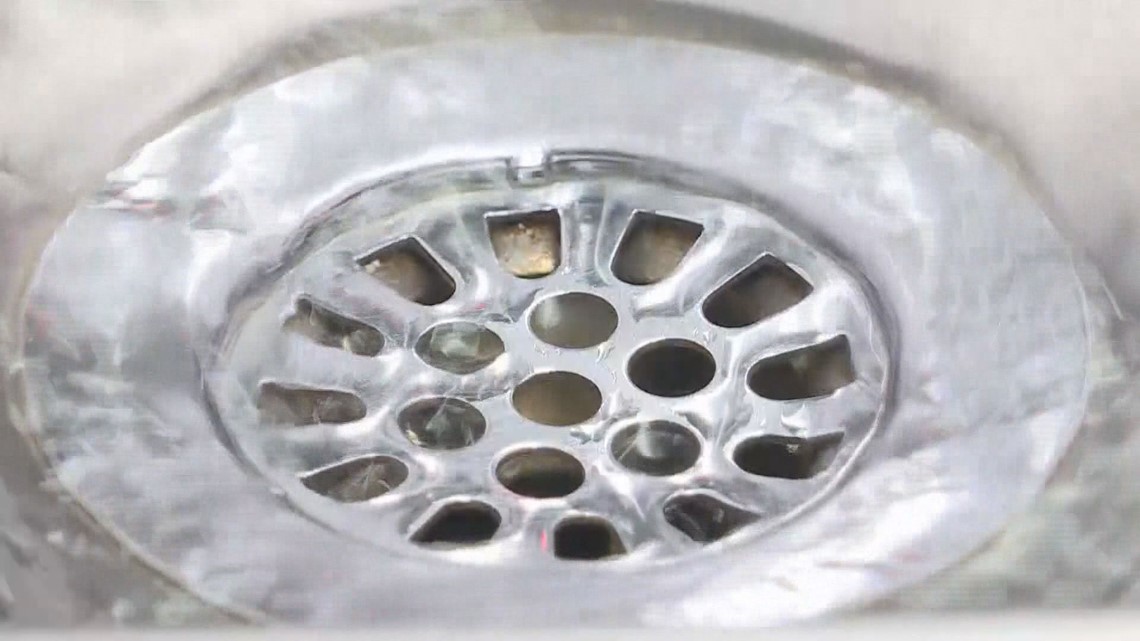AUGUSTA, Maine — During Thursday's Legislative Judiciary Committee hearing, more than four hours of public testimony was heard on a bill that would provide Passamaquoddy Tribal members at the Pleasant Point reservation access to clean water.
The reservation is just miles away from Eastport, located off the Passamaquoddy Bay, and is one of two reservations members of the tribe have lived on for decades.
Tribal leaders, public health officials, and dozens of Mainers from around the state testified in support of the legislation sponsored by the Passamaquoddy state Rep. Rena Newell.
The bill would look to accomplish three things, according to Newell. First, it would amend the Passamaquoddy Water District Charter to exempt it from paying property taxes. Newell said it is the only district in the state to pay taxes.
Second, the bill would allow the tribe to acquire two parcels of land near Pleasant Point, to use as alternatives for clean water access by building wells on the land.
The final goal of the legislation would be to amend the Maine Implementing Act and allow the Passamaquoddy and the state to regulate the water district, as is the case with other federally recognized indigenous tribes around the country.
Corey Hinton is the tribal attorney for the Passamaquoddy and said he was humbled after he heard the hours of testimony from non-indigenous Mainers in support of the bill.
"I grew up knowing the water [is] no good at Pleasant Point, and we don't drink it," he said in a phone interview on Thursday.
Hinton didn't grow up on that reservation but said many of his family members did, and some died of cancer that he said resulted from decades of drinking and bathing with the water tainted with chemicals.
In the hearing, Lisbeth Wierda testified neither for nor against the bill but represented MaineHealth and provided updates to the work a research team within the health system is doing.
Its goal is to quantify the effects of the water at Pleasent Point. She said the use of chlorine in the 1980s to treat the water resulted in the formation of toxic by-products.
"These by-products, called trihalomethanes, have been associated with adverse health outcomes across the human lifespan, such as adverse pregnancy outcomes and liver damage," she said in her testimony.
Hinton and Lisa Sockabasin, co-CEOs of Wabanaki Public Health and Wellness, said this might be the first time people learn about their people's issues.
"We hear often times generational disparities and generational poverty, but we don't really think about people living with a generational crisis when it comes to water," Sockabasin added Thursday.
She and her staff work with all members of the Wabanaki people, which includes the Passamaquoddy. She said the tribe's struggle to get clean water for drinking, cooking food, or bathing has been a severe problem for generations.


"It's devasting thinking about our children growing up seeing dirty water coming out of their dirty faucets at home," Sockabasin said.
Chief Maggie Davis spoke during the virtual hearing on Thursday. She addressed her goal of providing a safer future for the next generations of Passamaquoddy.
"A future where telling our children not to drink out of their school [water] fountains is a distant memory," she said.
Dana described how the water coming out of their faucets changes colors constantly from clear to yellow to brown. Dana said it's common for the Passamaquoddy to use water bottles to cook or even make coffee in the morning.
To split up the four hours of testimony in support of the bill, the committee allowed two parties who testified neither for nor against the legislation to speak.
Jerry Reid, Gov. Janet Mills' chief legal council, spoke on behalf of her office. He said he and Mills feel strongly about finding a solution to the clean water problem.
"This is just an unacceptable situation, and in 2022, we have to do better and find a way to provide safe and reliable drinking water to the reservation and the neighboring communities. The governor feels exactly the same way," he added.
While Mils' office does agree with most of what the proposed bill would do, Reid said allowing the Passamaquody to be the regulators of the water district would be "impractical."


"This water district, as you've heard about, is not a rival entity. It's a non-trial entity that serves three communities, Perry, Pleasant Point, and Eastport," he added.
While Hinton said that since the water is on Passamaquoddy land, it should belong and be regulated by his people, he reiterated that he is confident real change can be made.
He shared a story from a conversation with his great uncle as he reflected on his life before his death. Hinton said his great uncle told him, "There's no justice now, and there never will be justice for our people."
Hinton, who spoke on the phone in a room with his daughters, said those words pushed him to fight for change and added he's "just proud to be able to serve."
After beginning the public hearing around 2:30 p.m., the committee wrapped up for the day after the last speaker finished their remarks at 7 p.m.
A workshop will now be scheduled so lawmakers, industry experts, the governor's office, Passamoquody, and other tribal leaders can adjust the bill if deemed necessary before a vote is taken.

